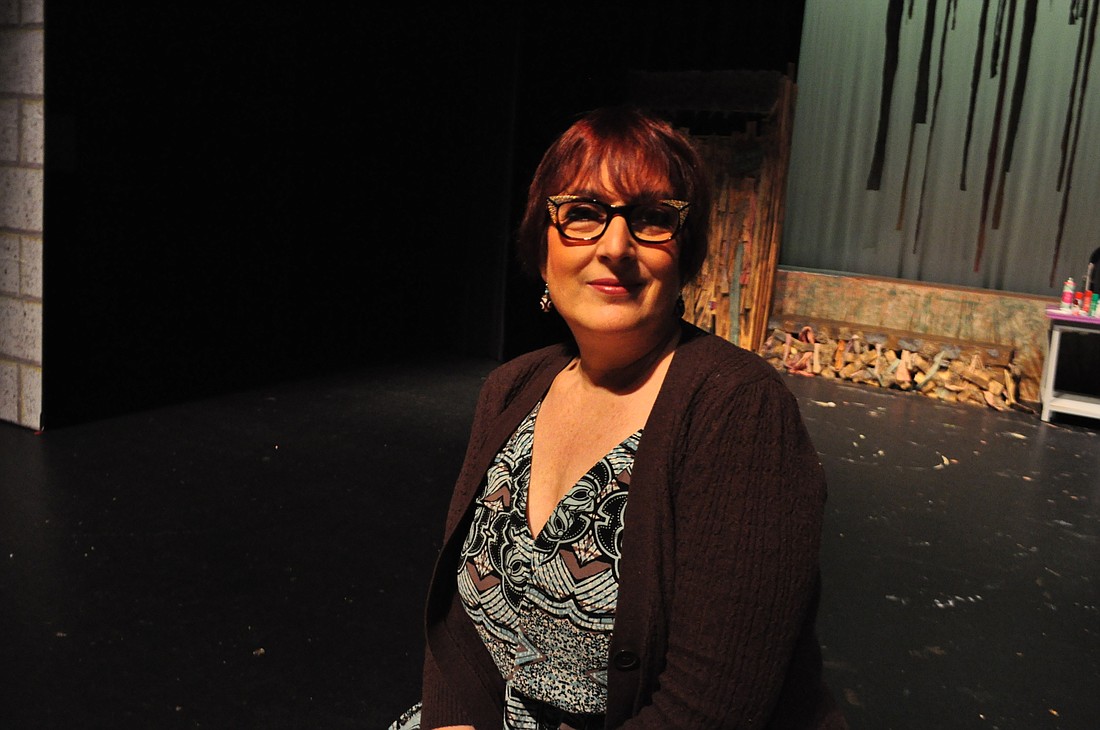- July 26, 2024
-
-
Loading

Loading

With a painter for a mother, Roxane Caravan grew up immersed in the arts, starting off dancing when she was just 3 years old.
Ultimately, her exposure to the arts led her to college for theater. But there, she became enamored with creating the vision for theater instead of taking center stage.
And after her four children were old enough, Caravan re-entered the workforce full time as a theater teacher at Lakewood Ranch High School, a post she’s held there for going on 16 years.
She and a team of theater students wrapped up a three-week Acting Up Performing Arts Camp, the musical theater department’s largest fundraiser of the year June 25. The camp has been serving children ages 5 to 14 since 2002. Proceeds go toward costs associated with the department's annual musical, including royalties for production, costumes, the set and props and more.
When the average high school student is counting the days until school ends, our theater department students are counting the days until camp starts. They love working with the younger kids sharing their love for theater, but they also just love being part of all aspects involved in putting on a show. It is also great for our community because the elementary and middle schools have very limited exposure to theater, if any, and this gives these talented students an opportunity to be exposed to theater at a young age, which our hope and goal: to create a life long love of live performance that they will one day pass on to their kids.
My motto for fundraising is to use our beautiful theater and talented students in order to make money doing what we are passionate about and love. (It's) way more fun and lucrative than a bake sale or a car wash.
One of the most difficult things for young performers is everybody wants to be the star. I really try to help kids see that perspective — it’s not about having the most lines. Every single person on the stage and behind the scenes is important and help make it a great production.
One of the benefits of students performing on stage is that it makes them so much more comfortable in any scenario where they have to get up in front of people to speak, wether giving a presentation for their history class or a job interview. Anything like that helps kids and gives them a better comfort level with themselves. Theater teaches you to be verbally articulate.
One of the things I always say to my students is only you and the people on stage know what you are supposed to be saying and doing. Most stage fright comes from kids thinking that people are going to know if you mess up. But the reality is no one knows except you and the people on stage with you.
We teach so much about team building and being supportive and how important it is that when you are working with a group of people, that if you do mess up, they are there to bail you out. To me that, that’s the most important aspect of working together as a cooperative team. That’s important in live theater.
(Whether) it’s little kids at summer camp or a Broadway show, you can see a show 10 times, and every time it’s going to be a different show. Maybe somebody’s sick or had a fight with their mom or girlfriend. We work through that.
People have the concept of theater as ‘Oh, here’s your script.’ But the reality is there’s an extensive amount of character research that goes into making a character understand who they are and why. Who am I? What am I doing here? You’re telling a story. To tell a story, you have to understand all those things. That’s probably the hardest thing for young actors. Once they grasp how important it is, it opens things up for them in such a huge way. That creates a comfort level. They know who their character is; it’s not just about memorizing lines.
When we do our musicals, I tell my students there are two kinds of nervous — nervous excited, butterflies-in-my-stomach nervous; that’s the good nervous. The bad nervous is ‘Oh no, I don’t feel I 100% know my dialogue.’ That’s the bad nervous, and that’s the nervous that doesn’t need to exist. It’s self created; only you can fix that.
From a theatrical standpoint or even if someone is giving a speech, you want people to feel what you are saying is genuine and honest.
Theater is really a complex process. There’s a lot of layers to it. The actor is the tip of the iceberg, truly. Particularly from a technical theater, film and television, we have become so technically complex, really the actor plays one small role in making things happen.
I have a lot of respect for all actors, but for live theater in particular. Every time you go out there, you get one shot. Even from the standpoint of auditions or a college interview, you walk into a room and you have a minute and half of their time, and that one and half minutes shapes whether you get it.
A lot of stage actors have a hard time transitioning to television. TV actors (often) have a hard time transitioning to that live theater. On-stage acting is in the moment; it’s three dimensional. Film and television is not. There’s no energy from an audience that goes with it.